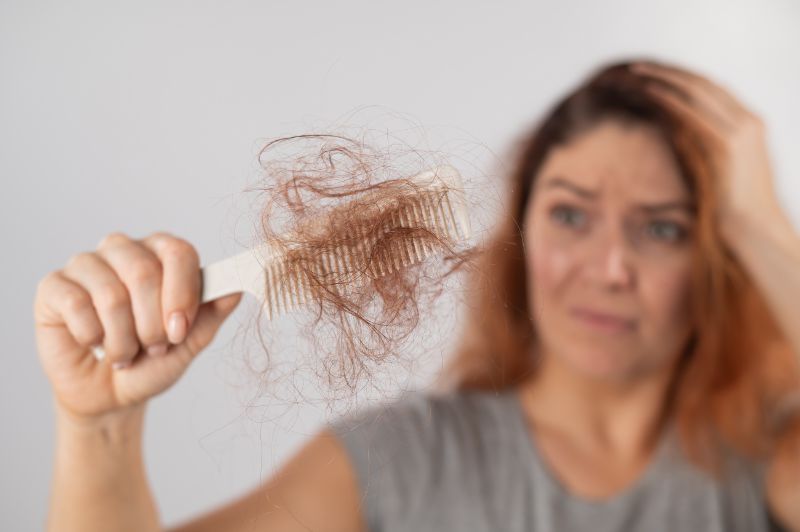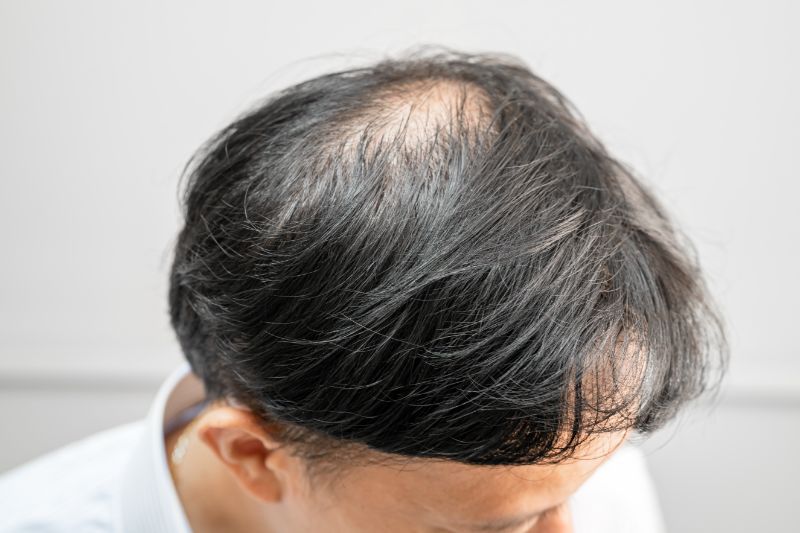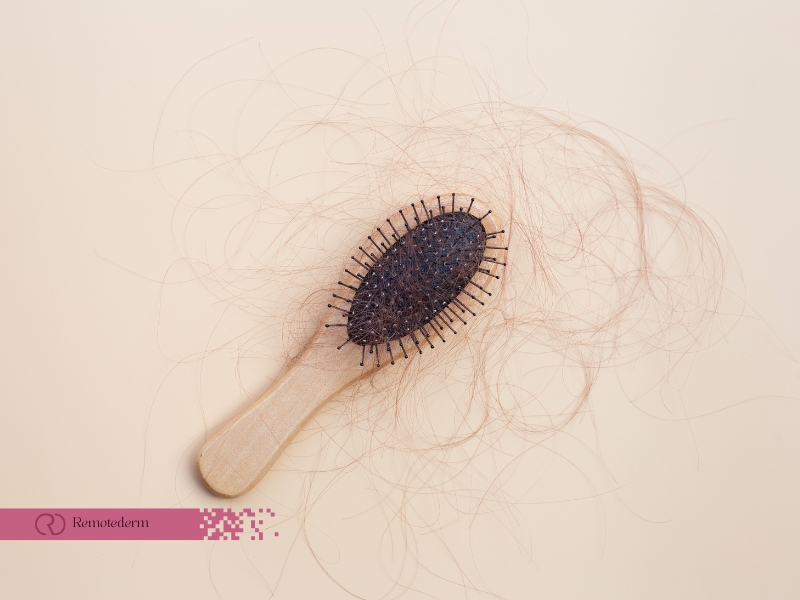Hair loss can be a deeply personal and upsetting experience for many people. While there may not be immediate physical consequences, the psychological effects of hair loss can be profound and far-reaching. In this article, we will look at the emotional and mental effects of hair loss and how men and women react differently. We will also talk about how to deal with these difficulties and get the help you need.
The Hair Loss Psychology: An Overview
Hair loss, also known as alopecia, can have significant psychological effects on individuals, affecting their self-esteem and body image. People may feel a loss of control over their appearance, which can lead to various emotional responses.
Emotional Impact
The emotional impact of hair loss is often underestimated, but it is a significant aspect that needs to be addressed. This section delves into the profound psychological effects that hair loss can have on an individual.
- Anxiety and Depression: The sudden or gradual loss of hair can trigger feelings of anxiety and depression in both men and women. The emotional distress can range from mild to severe, impacting daily life and overall well-being.
- Loss of Self-Esteem: Hair is often closely tied to personal identity and self-worth. Losing it can cause individuals to question their attractiveness and confidence, leading to a diminished self-image.
- Social Withdrawal: People experiencing hair loss may withdraw from social situations due to fear of judgment or embarrassment. This can lead to isolation and a decline in overall quality of life.
Coping Strategies
Coping with the emotional impact of hair loss is a crucial part of the journey towards acceptance and healing. This section outlines several strategies that can be employed to manage the psychological effects of hair loss.
- Therapy and Counseling: Professional assistance can be invaluable in dealing with the emotional consequences of hair loss. Therapy sessions can provide a safe space to express emotions and develop coping mechanisms.
- Support Groups: Sharing experiences with others facing similar challenges can be reassuring and motivating. Support groups foster a sense of community and understanding, allowing individuals to feel less alone in their journey.
- Positive Self-Talk: Self-compassion and acceptance can help people deal with the psychological effects of hair loss. This can include using affirmations and reminding oneself of one’s own strengths and other positive qualities.
Psychological Effects of Female Hair Loss
Women often experience unique challenges when dealing with hair loss. Society places a significant emphasis on women’s appearance, making them more vulnerable to emotional distress. Some effects for women are:
- Loss of Femininity: Hair is a symbol of femininity for many women, and losing it can impact their perception of themselves as a woman. This can lead to feelings of inadequacy or a loss of identity.
- Increased Stress: Women may feel additional pressure to hide their hair loss, leading to stress and anxiety. This can manifest in daily worries about how they are perceived by others.

Coping Strategies for Women
Dealing with hair loss can be a challenging journey, especially for women, due to societal pressures and personal expectations. This section presents some coping strategies specifically tailored for women to help them navigate through this journey.
- Wigs and Hairpieces: These can help women regain confidence and feel more comfortable in social settings. Choosing styles and colors that align with their preferences can also contribute to a sense of empowerment.
- Online Hair Loss Dermatology: Consulting with an online hair loss specialist can provide women with personalized treatment options and guidance on how to address their specific situation.
Psychological Effects of Male Hair Loss
Men, too, face psychological effects from hair loss, though the societal response may be different compared to women. Some effects for men are:
- Questions of Masculinity: Hair loss can challenge traditional views of masculinity and virility, causing men to question their sense of self and confidence in their appearance.
- Fear of Aging: Hair loss can lead to concerns about aging and loss of attractiveness, which can affect a man’s self-image and outlook on life.
Coping Strategies for Men
Hair loss can be a significant concern for many men, impacting their self-esteem and emotional well-being. This section outlines some coping strategies that men can employ to manage the effects of hair loss.
- Hairstyles and Grooming: Men can explore different hairstyles or grooming methods to adapt to hair loss. This can include shorter styles or clean-shaven looks that minimize the appearance of thinning hair.
- Professional Counseling: Seeking help from a therapist can aid men in navigating the psychological impact of hair loss. A therapist can help address underlying concerns and provide support in developing healthy coping strategies.

Hair Loss Psychological Impact: Seeking Help and Support
Hair loss can affect individuals differently, but there are resources and strategies available to help cope with the emotional challenges.
Seeking Help
The journey of dealing with hair loss often involves seeking help and support from various sources. This section outlines some of the key areas where individuals can seek help to manage their hair loss effectively.
- Medical Treatment: Consult a healthcare provider or online hair loss dermatology specialist for medical advice and treatment options. Early intervention can sometimes slow hair loss or even reverse it in certain cases.
- Therapy: Talk therapy can provide a safe space to explore and address feelings related to hair loss. This can be beneficial for processing emotions and developing healthy coping mechanisms.
- Education and Research: Learning more about the causes and treatments for hair loss can empower individuals to make informed decisions. Staying informed about available options can lead to a sense of control and confidence in managing the situation.
Building Resilience
Resilience is the ability to bounce back from adversity, and building resilience is a crucial part of coping with hair loss. This section discusses various strategies that can help individuals build resilience and navigate through the emotional challenges posed by hair loss.
- Mindfulness Practices: Meditation and mindfulness can help manage stress and anxiety caused by hair loss. These practices can promote a sense of calm and acceptance, which can help with the adjustment process.
- Physical Exercise: Regular physical activity can improve mood and overall well-being. Exercise can also help to relieve stress and negative emotions.
- Healthy Lifestyle Choices: Eating a well-balanced diet and getting enough sleep can help people cope better with hair loss. A holistic approach to health can boost mental and emotional resilience.
Final Thoughts
The psychological effects of hair loss can be profound, affecting both men and women in different ways. By seeking support and exploring coping strategies, individuals can navigate these challenges more effectively. Whether through therapy, support groups, or medical treatment, there are many paths to finding peace with hair loss. Remember that you are not alone on this journey, and there are resources to help you get through it.
FAQs
- How can stress contribute to hair loss?
Stress can lead to hair loss by affecting the hair growth cycle. Prolonged stress can push hair follicles into a resting phase, resulting in increased shedding.
- How do nutritional deficiencies impact hair loss?
Nutritional deficiencies, particularly in iron, vitamin D, and protein, can contribute to hair loss and exacerbate its psychological effects. Ensuring a balanced diet with necessary nutrients can help maintain healthy hair and support overall well-being.
- Can certain medications cause hair loss?
Yes, some medications, such as those used for chemotherapy or certain blood thinners, can cause hair loss as a side effect. Consulting a healthcare provider can help determine if medication changes or alternative treatments may be necessary.
- Is it possible to reverse hair loss naturally?
Some cases of hair loss can be reversed with lifestyle changes, such as improved nutrition and stress management. However, the effectiveness of natural remedies varies, and professional guidance may be necessary to find the most suitable approach for each individual.
